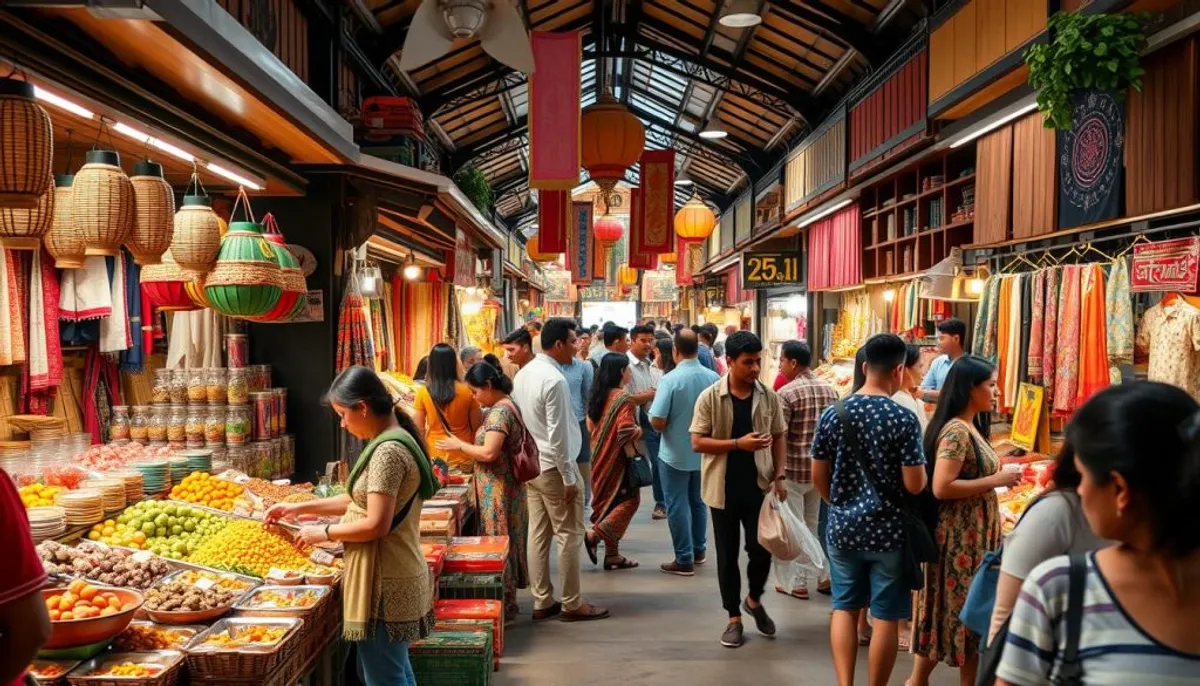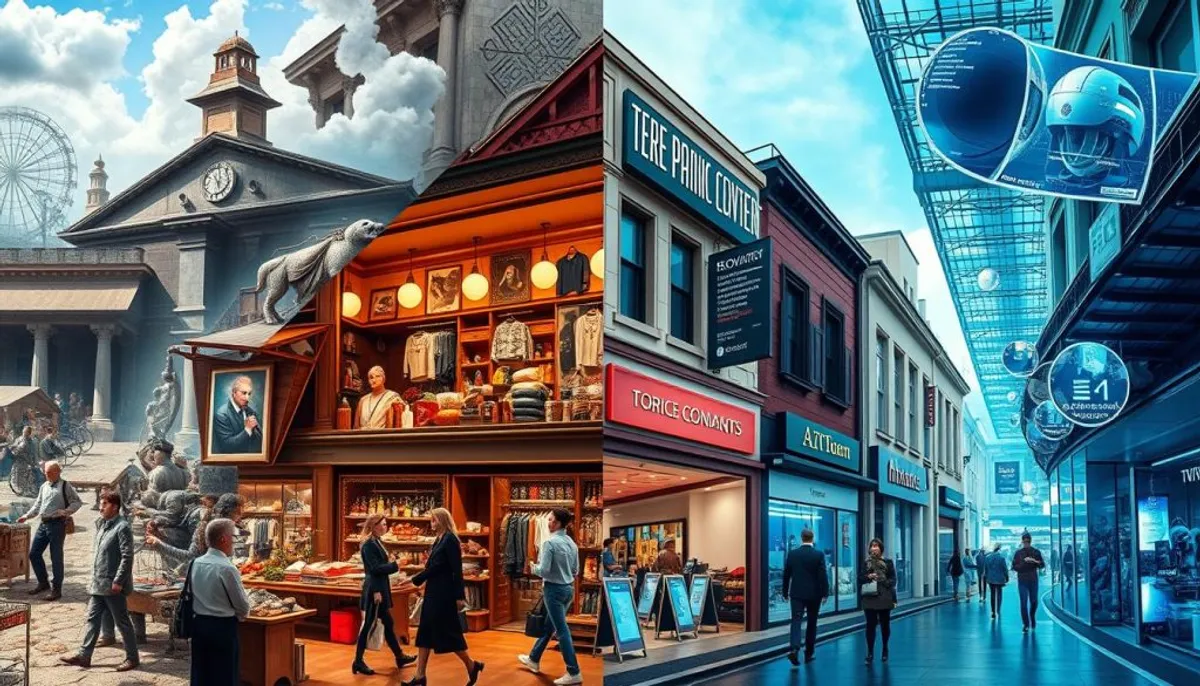Culture, a set of values and beliefs, is fundamental in our society. It profoundly shapes our purchasing choices and behaviors. Understanding this influence is crucial to grasping modern consumption.
Studies reveal that targeted advertising can boost sales by 20%. This figure underscores the importance of our cultural environment on our decisions. Culture determines what is desirable, influencing our purchases.

Consumers use their purchases to express their social identity. Indeed, 30% of purchases reflect cultural aspirations. This shows how consumption becomes a language, expressing our values and identity in a modern society.
The evolution of cultural norms transforms our habits. There is a 5% decrease in sales of traditional products in favor of innovations. This change illustrates the dynamics of culture and its impact on our purchasing behaviors.
The definition and fundamental characteristics of culture
Culture is defined as a set of ideas, meanings, and values shared by a society. These characteristics manifest in our thoughts, emotions, and behaviors, often unconsciously. A study reveals that 90% of our purchase decisions are influenced by cultural factors of which we are unaware.
The essential components of culture in our society
Our culture consists of various essential elements, including Khmer architecture:
- Language and communication
- Beliefs and values
- Social norms
- Traditions and customs
- online school
These components shape our consumption choices. For example, the growing interest in veganism in France illustrates the evolution of societal values. A projected 17% increase in sales of vegan products is expected between 2019 and 2021.
The impact of cultural symbols and values
Cultural symbols, such as brands or logos, strongly influence our purchase decisions. Societal values guide our preferences and consumption behaviors. According to P. Kotler, consumers identify with brands through five main personality traits: sincerity, excitement, competence, sophistication, and ruggedness.
The role of collective norms and beliefs
Collective norms and beliefs define what is acceptable or not in our society. They directly influence our consumption habits. For example, 76% of parents admit that their children influence their food purchases. This reflects the evolution of family norms and societal values regarding consumption.
How culture influences consumer behavior
Culture is fundamental in shaping consumption behaviors. It serves as a filter for interpreting products, services, and brands. Cultural influence is felt in our purchasing choices, often subtly but profoundly.
Consumer preferences reflect cultural values. In Canada, national pride, freedom, and the environment are essential values. They influence consumption choices, making Canada one of the most individualistic countries in the world.

In France, hierarchical ideology shapes consumption behavior. Brands considered the best in their category perform better in the French market. This cultural peculiarity guides marketing strategies and purchase decisions.
Cultural norms influence our perception of products. For example, in the West, wearing headphones in the presence of others is considered rude. This norm affects product usage and advertising strategies of headphone manufacturers.
The culture of consumption evolves under the influence of marketing, media, and globalization. In Quebec, the law prohibits targeted advertising to children under 13. This directly impacts communication around certain products, such as headphones. These cultural regulations modify companies' strategies and, consequently, consumer behavior.
The evolution of the culture of consumption in our modern society
Today's society is experiencing a major cultural transformation, influenced by marketing and mass media. These changes significantly impact our purchasing behaviors.
The influence of marketing and advertising
Modern marketing is essential in shaping our purchasing behaviors. Food companies, under pressure from investors, aim for growth. They employ complex strategies to understand and satisfy consumer preferences, seeking to increase their profits.

The role of media and mass communication
Mass media have profoundly changed our eating habits. A study reveals that 60% of individuals eat on the go, 70% spend less than 10 minutes on breakfast, and 95% spend less than 30 minutes at lunch. These data demonstrate the effect of our increasingly fast-paced life on our food choices.
The impact of globalization on consumption behaviors
Globalization has revolutionized our purchasing habits. Large companies have sought to standardize production to reduce costs. However, a growing trend toward personalization is emerging. For example, 25% of 18-44 year-olds use smart ordering systems for their meals, showing an adaptation to new technologies in a globalized world.
The social and cultural dimensions of consumption
Consumption plays a prominent role in our society. It profoundly influences consumer identity and reflects their values. Purchasing choices are shaped by a multitude of social and cultural factors.
The construction of identity through consumption
The products we choose reveal much about us. They reflect our personality and our belonging to specific groups. For example, opting for a particular clothing brand may indicate a lifestyle. Companies have understood this and offer targeted products for different consumption subcultures. Moreover, cultural influence on consumption plays a key role in these choices, shaping our preferences and purchasing behaviors.
The expression of values and aspirations
Consumption values are constantly evolving. There is a trend towards more responsible purchases. Many consumers now prioritize sustainable and ethical products. This reflects personal and societal aspirations. Brands respond by offering products aligned with these new values.
Social interactions in the purchasing process
Buying behavior is heavily influenced by our surroundings. Opinions from family, friends, or influencers on social media play a crucial role. These social interactions shape our preferences and consumption habits.
| Influence Factor | Impact on Consumption |
|---|---|
| Family Culture | Transmission of values and purchasing habits |
| Reference Groups | Influence on beliefs and attitudes |
| Social Networks | Sharing of opinions and product recommendations |
| Seasonal Events | Adaptation of purchases according to local holidays |
Conclusion
The cultural impact on consumer behavior is undeniable. Cultural values influence our purchasing choices, shaping our preferences and attitudes. In collectivist cultures, purchasing decisions are often guided by the opinions of family or community. In contrast, individualistic cultures prioritize more personal decision-making.
The evolution of consumption reflects these cultural differences. For example, 66% of French consumers consider the values of companies in their purchasing decisions. Coca-Cola's "Open Happiness" campaign, focused on universal happiness, increased customer loyalty and sales. This illustrates the importance of values in marketing.
The consumer society is evolving towards greater responsibility. In 2019, 67% of French people changed their purchasing habits to reduce their environmental impact. The organic product market in France has tripled in 10 years, reaching 9.7 billion euros in 2019. These figures show that consumer behavior is adapting to current societal challenges.
In conclusion, understanding the cultural influence on consumption is crucial for businesses. In a world where 72% of French consumers demand better customer service, adapting to cultural expectations is essential. This allows for success in our ever-evolving consumer society.
RelatedRelated articles


